We are an interdisciplinary team of ethnobiologists, anthropologists, botanists and conservation scientists with a strong commitment to collaborative, supportive, inclusive and equity-based research ethics
We are a transdisciplinary team of Tsimane’, Bolivian, and international researchers working hand in hand to strengthen Indigenous knowledge systems. Our partnership is rooted in trust, reciprocity, and respect, recognizing that knowledge lives in relationships, social, cultural, and spiritual, rather than in data alone.
The IEK-CHANGES project is part of our shared journey toward more equitable and decolonizing research practices. We seek to open space for Tsimane’ collaborators to shape how knowledge is documented and shared, in ways that support their long-term cultural aspirations. By listening deeply, standing in solidarity, and nurturing intergenerational transmission, we strive to build research that is both scientifically rigorous and profoundly meaningful to the communities with whom we walk this path.
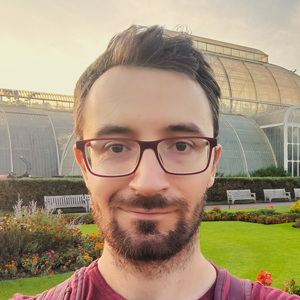
Álvaro Fernández-Llamazares is an ethnobiologist with an established research trajectory on the study of Indigenous Peoples’ land-based stewardship systems. He is currently a Ramón y Cajal research fellow based the Botany Unit of the Department of Animal Biology, Plant Biology and Ecology (BABVE) and at the Institute of Environmental Science and Technology (ICTA-UAB). He holds a PhD in Environmental Sciences (Universitat Autònoma de Barcelona, 2015) and seven years of postdoctoral experience at the University of Helsinki (Finland). He has more than 32 months of in-depth ethnographic field-based engagement with different Indigenous communities in the Global South (e.g., the Tsimane’ people of the Bolivian Amazon, Maasai and Daasanach people of the Kenyan Rift Valley). He has published more than a hundred scientific articles, and his research has received several awards, such as Olli’s Prize from the University of Helsinki or the Catalan Research Prize on Environmental Science.
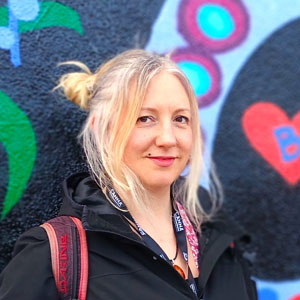
Plants embody meaningful stories on how people connect with their environment, which in turn, reflects the knowledge we share with the land. This powerful connection inspires my research. Unfairly, these relationships are often disrupted by extractive and capital-pursuit actions rooted in colonialism and the neoliberalist policies that sustain it.
Within the IEK-Changes Project I aim to understand how Tsimane’s oral histories and other historical sources, such as photographs, inform us about changes and continuities in their plant knowledge and practices and how the Tsimane’ people have been affected by those processes, as well as their relationship with their territory.
I previously engaged in diverse projects at the intersection of botany, history, linguistics, and art (Brazil, Colombia, Curaçao, Colombia, and the Netherlands). Additionally, I am intrigued about plant lore related to other-than-human beings in rural areas (e.g., Aragon Pyrenees) and the role they have played in the territory over time.
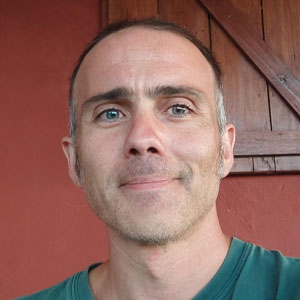
I am a land system and conservation social scientist, and a postdoctoral researcher within the ERC project IEK-Changes. I have a penchant for maps, impact evaluation and unexpected outcomes of forest conservation interventions. During most of my career I have focused on tropical forest landscapes, particularly in Madagascar, where I have worked for over 10 years. My research integrates extensive field-based social data collection with participatory mapping, geospatial analysis, impact evaluation and evidence synthesis, to understand the social and environmental impacts of forest conservation interventions.
My work at the IEK-Changes project focuses on understanding how changes in Indigenous environmental knowledge affects biodiversity outcomes in the Tsimane’ Territory in the Bolivian Amazon. For this, I will be working on reconstructing the history of forest cover change in these territories and using impact evaluation to understand what are the factors supporting the Tsimane’ people in protecting their forest resources.
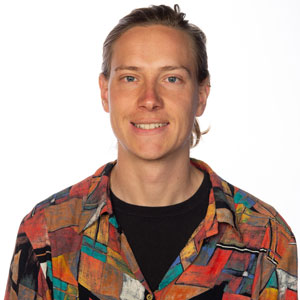
I’m a PhD student in ethnobotany, with a passion for conserving biodiversity and improving human livelihoods. I am part of the IEK-Changes team and together with the Tsimane’ people in Bolivia we are researching how Indigenous knowledge of plants is changing and what effect this has on local environmental management and biodiversity conservation.
I hold two MSc degrees: one in Forest and Nature Conservation and one in Ethnobotany, both from Wageningen University, the Netherlands. My previous research is varied but has always been focussed on Indigenous and local environmental knowledge – the nexus of human culture and biology. I have studied agroforestry systems of the Kichwa people in the Ecuadorian Amazon, worked with the Taruma people in Guyana to retrace their past through linguistics and plant knowledge, and advised botanical gardens on the topic of decolonisation.
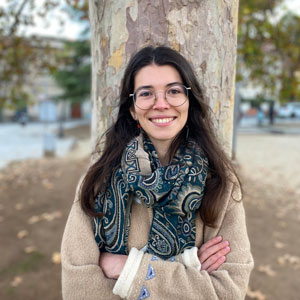
Ecologist investigating how changes in Indigenous environmental knowledge affect biodiversity conservation.
I am a PhD researcher at ICTA-UAB, working with the IEK-CHANGES team, which focuses on understanding the dynamics of Indigenous Environmental Knowledge (IEK) and its role in biodiversity conservation.
In the past, I studied non-human primate behaviour and conservation, which gave me a unique perspective on the vital role of Indigenous peoples in primate conservation. This experience led me to shift my focus toward exploring the value of Indigenous knowledge in conservation efforts. Understanding and incorporating Indigenous knowledge into biodiversity conservation strategies can play a key role in protecting ecosystems while respecting and promoting the rights of Indigenous communities. It is this intersection of environmental justice, conservation, and human rights that deeply motivates my research.
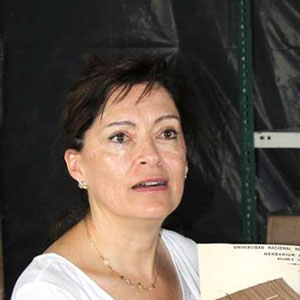
Prof. Mónica Moraes R. is a Bolivian botanist and one of the world’s foremost experts on tropical palms. She studied biology at the Universidad Mayor de San Andrés (UMSA) in La Paz and obtained her MSc (1989) and PhD (1996) at the University of Aarhus (Denmark). She has been a full Professor at UMSA since 1990 and has been in charge of the palm collection at the National Herbarium of Bolivia since 1984. She has been an author of two IPBES assessments of the United Nations and the Panel of Scientists for the Amazon. She is a member of the Board of Directors of the International Foundation for Science (IFS, Stockholm, Sweden) and the World Academy of Sciences (TWAS, Trieste, Italy). Prof. Moraes was appointed full member of the Bolivian Academy of Sciences in 2008 and since June 2021 she has the honour of being the first-ever woman to serve as its President. She is also a member of the Multidisciplinary Expert Science Advisory Group to UNEPs GEO-7 Assessment (2023-2026), where she also serves as an observer at the Local and Indigenous Knowledge Taskforce.
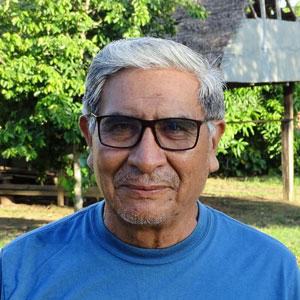
Tomás Huanca has a PhD in Anthropology from the University of Florida, in the United States. Since 2009 he has been executive director of the Centro Boliviano de Investigación y Desarrollo Socio Integral (CBIDSI), and is an associate researcher at the Center for International Development at Brandeis University, in the United States. He has been a consultant for the American Indian Museum of the Smithsonian Institution of the United States and for UNICEF. He has been working continuously with the Tsimane’ people since 1999. With his extraordinary knowledge of the Tsimane’ language (which he has carefully studied and documented over almost three decades), he is widely recognized as one of the leading ethnographers of Tsimane’ culture and society.
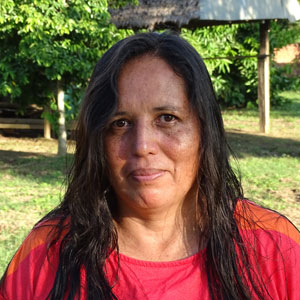
Esther Conde has an undergraduate degree in Biology from the Universidad Mayor de San Andrés (UMSA), in Bolivia. Born in La Paz, she has worked continuously among Amazonian Indigenous communities in Bolivia since 2000. Specifically, she has worked for 24 consecutive years in the Tsimane’ territory, frequently visiting the communities and creating ties of trust and mutual respect with the Tsimane’ people and their legitimate authorities. She currently works as a field researcher and executive secretary of the Centro Boliviano de Investigación y Desarrollo Socio Integral (CBIDSI), in charge of accounting and database maintenance. With her extensive knowledge of the Tsimane’ language, she has participated in numerous international projects such as COMBIOSERVE (funded by the European Commission FP7; 2012-2015) or the LICCI project (funded by the European Research Council; 2018-2023). She was the second field coordinator of the Tsimane’ Amazonian Panel Study (2002-2010).
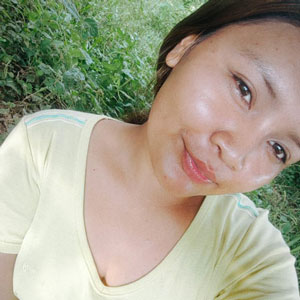
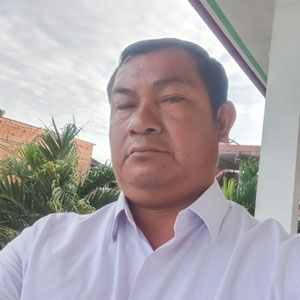
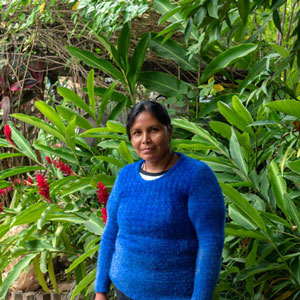
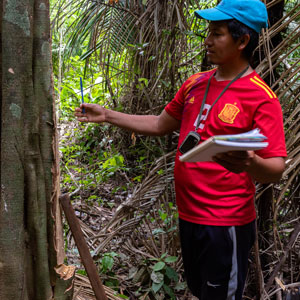
Dario Cari Vie is a Tsimane’ community member with training in agricultural technology. He began working as a translator out of a deep interest in learning more about the plants used by his people, and he has since developed extensive knowledge of local ethnobotanical traditions. Dario is committed to preserving Tsimane’ ecological knowledge and cultural histories, and he hopes to one day share this heritage by teaching both children and adults. For now, he continues his work as a translator, deepening his understanding of plants and mushrooms. He takes great pride in his Tsimane’ identity and the wisdom of his ancestors.
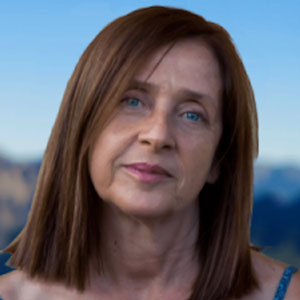
Encarna Poncela has a degree in History from the Universitat Autònoma de Barcelona (UAB) and a DESE in the Social and Cultural Anthropology Doctorate program from the same university. She is currently the Project Manager of the IEK-CHANGES project, funded by the European Research Council (ERC). For 5 years, she has been supporting other ERC projects managing the economic resources and financial justification. Previously, she worked as a documentalist in the private sector and at the UAB (European Documentation Centre), as well as in other areas of the university.
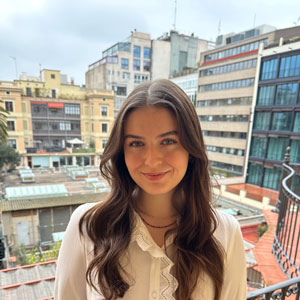
Alexandra holds a B.A. in Cultural Anthropology, a B.S. in Sustainability, and a minor in Spanish from Oregon State University. Originally from Oregon in the United States, she has worked in community advocacy in California’s Bay Area, supporting sustainable grape growing in winemaking. She is currently pursuing an M.Sc. in Interdisciplinary Studies in Environmental, Economic and Social Sustainability at the Institut de Ciència i Tecnologia Ambientals of the Universitat Autònoma de Barcelona (ICTA-UAB). Her research examines the traditional uses of palms by the Tsimane’ people in the Bolivian Amazon, contributing to the documentation and preservation of Tsimane’ botanical knowledge. She is interested in preserving Indigenous and Local Knowledge within its cultural context, recognizing its value in sustaining communities as well as contributing to conservation efforts and climate adaptation strategies.
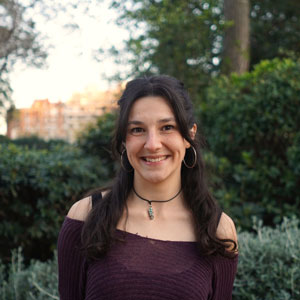
I am a master’s thesis student in ethnoecology at ICTA-UAB, passionate about the connections between natural and social dynamics through biocultural approaches.
As part of my research, I collaborate with the IEK-Changes team and the Tsimane’ people in Bolivia to study how Indigenous knowledge of plants is changing and its impact on local environmental management and biodiversity conservation. Additionally, I analyze the Cultural Keystone Species (CKS) database as a potential ethnobiological tool to better understand the relationship between cultural and biological diversity.
I hold a BSc in Biology (UAB) and an MSc in History of Science and Society (UAB-UB), specializing in Scientific Communication and Natural Heritage. Currently, I am completing a second MSc in Ecology, Environmental Management, and Restoration (UB).
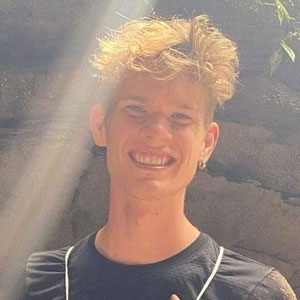
I am a M.Sc. Sustainability graduate with background in Environmental Engineering, aiming to contribute to a just and livable future for everyone. I became part of IEK-Changes through my master’s thesis, in which I
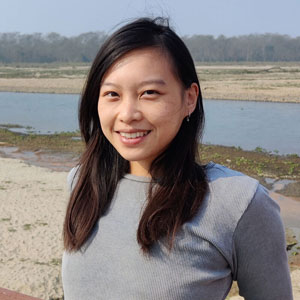
Jocelyne (she/her) is a postdoctoral researcher at ICTA-UAB (CONDJUST project) working on how geospatial data are used in conservation. She also works on the roles and relationships between Indigenous Peoples and conservation and on convivial conservation concepts. Her overarching interest is in creating equitable and effective conservation practices and policies.
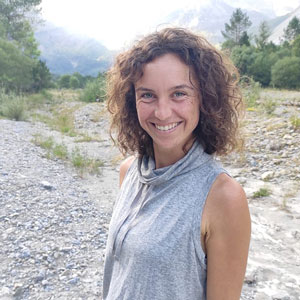
Sandrine Gallois is an ethnoecologist currently working as a postdoctoral researcher at the Institut Botànic de Barcelona (Ramon y Cajal Fellow), Spain. She holds a PhD in Environmental Science and in EthnoEcology (2016, Autonomous University of Barcelona, Spain and National Museum of Natural History, France). Between environmental and social sciences, her research interests are embedded in the maintenance of biocultural diversity and the interface between scientific and non-scientific knowledge systems. She is approaching them through the lenses of local ecological knowledge, cultural transmission, childhood studies, ethnobotany, and science-art encounter. Sandrine has been involved in different international projects, and recently led a research project on the resilience of the Indigenous Peoples’ healthcare system approached through ethnobotany, cultural and medical anthropology, granted by the AGAUR (Beatriu de Pinós 2020).
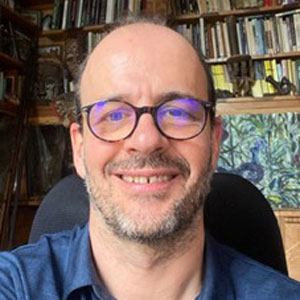
Professor Jerome Lewis is an anthropologist at University College London. He has worked with BaYaka hunter-gatherers in the forests of northern Congo-Brazzaville since 1993. He has published on their egalitarian politics, taboos and myths, and the role of rituals, music and dance in governing a society without leaders. Jerome led applied research to define how to apply free, prior and informed consent in the context of expanding extractive industries and contributed to developing the first law to recognise Indigenous People’s rights in Africa. He advocates for the recognition of Indigenous conservation efforts, to their rights over their lands, and to better representation using new technologies (Extreme Citizen Science). He is the director of the Centre for the Anthropology of Sustainability and of Flourishing Diversity.

The IEK-CHANGES project is an ERC Starting Grant funded by the European Union (IEK-CHANGES, 101117423) to Dr. Álvaro Fernández-Llamazares.
Views and opinions expressed are however those of the author(s) only and do not necessarily reflect those of the European Union or the European Research Council Executive Agency. Neither the European Union nor the granting authority can be held responsible for them.